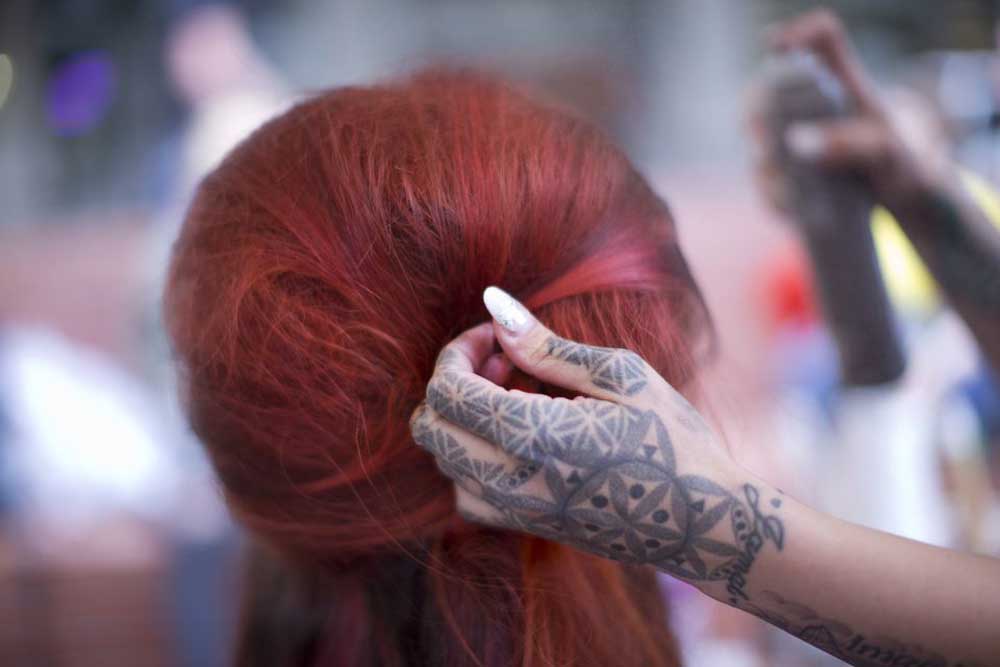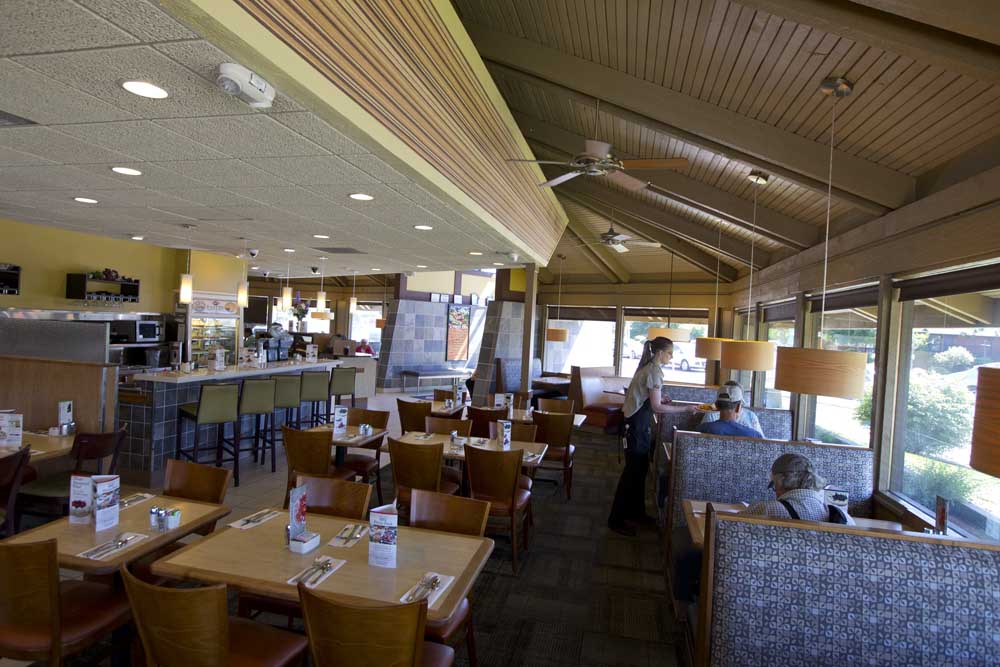Salon, spa workers fear for safety as Oregon reopens from coronavirus shutdown
Published 11:20 am Monday, May 11, 2020

- A beehive hairstyle comes together at Pioneer Courthouse Square in downtown Portland.
Hannah Hulett stopped seeing clients at her clinic in Hood River on March 14 after determining that she could no longer safely practice massage therapy due to the COVID-19 crisis.
Two months later, Hulett doesn’t think much has changed.
While some locales have seen a drop in COVID-19 cases, testing is not widely available, and the Centers for Disease Control and Prevention and the state of Oregon still recommend physical distancing.
That’s why Hulett was shocked to learn Thursday that massage therapists and other personal service providers whose jobs require hands-on contact would be allowed to start reopening in certain Oregon counties on May 15 as part of Gov. Kate Brown’s Phase 1 plan to restart the state economy.
“I won’t be opening my practice without more prevalent access to testing and without more information on the effects of COVID,” Hulett said. “I don’t feel like I can practice massage therapy safely right now for my clients.”
Hulett is among many personal service providers in Oregon who are concerned that they will be asked to reopen before they feel safe to return to work and are worried they will lose unemployment benefits if they choose to stay shut. A petition calling on Brown to rethink her decision to allow personal services providers to be part of her Phase 1 plan had over 4,000 signatures, as of Monday morning.
The majority of those providers will not be allowed to open for weeks, including those in the state’s largest county, Multnomah County. Counties must meet specific criteria and be approved by Brown’s office before entering Phase 1. Those standards include having declining levels of COVID-19 hospital admissions over a 14-day period and minimum levels of testing and contact tracing, among other things.
The Association of Oregon Counties said 23 of Oregon’s 36 counties applied to reopen Friday when Brown’s office began accepting applications.
Hulett practices massage therapy in Hood River, one of the counties that has applied to reopen. But she won’t return to work on May 15 if Hood River is approved, even though she would likely be ineligible to collect unemployment benefits if she chooses to remain closed.
Gail Krumenauer, a spokesman for the Oregon Employment Department, said that a person would generally be ineligible for unemployment benefits if that person chooses not to return to work and doesn’t meet one of six COVID-19 exceptions. Fear of personal safety is not among the exceptions.
Providers who return to work, but are unable to draw the same business due to COVID-19, could still be eligible for newly established Pandemic Unemployment Assistance, known as PUA.
Cortney Pinion, a hair stylist and owner of Style Haus in Salem, said she has asthma and doesn’t yet feel safe returning to a job that will require her to stand within a foot of her clients. Yet she plans to start seeing clients once the state gives Marion County, which has applied to reopen, the go-ahead because she can’t financially afford to stay closed without assistance.
Pinion and her family have struggled to stay afloat over the last two months, in part because Oregon didn’t start accepting benefits claims from self-employed workers and contractors until April 28. Many of those workers, including Pinion, have yet to see any money.
Pinion and her family have managed to get by on her wife’s income alone, but she said they were still forced to request a mortgage forbearance last month. She said she has racked up nearly $4,000 in business debt while her salon has been shut.
“Financially, I’m going to have to go back to work as soon as I’m cleared,” Pinion said. “God willing, I’ll end up getting something at some point, the PUA will finally come through. But even if that happens, as soon as they open up Salem, they’re going to cut me off. I’m going to be right back in the boat that I’m in now.”
Not all personal services providers agree that it is too soon to return to work.
Lindsey Graham, the owner of Glamour Salon in Salem, directly violated Brown’s March 23 stay-home order by seeing a client at her salon last week, saying that she needed to reopen to provide for her family.
But trying to meet state guidelines to return to work could be a financial hardship for many providers, especially those who have seen little to no money coming in over the last two months.
The Oregon Health Authority released guidelines Thursday that personal service providers will need to follow to reopen once their counties are granted approval.
The guidelines require providers to ask their clients about their health before the appointment, wear face coverings, use clean capes and smocks with each client, when applicable, adhere to heightened cleaning standards and ensure that 6 feet of distance is maintained between people in the facility — except when the service is being provided.
“If the 6-foot distancing is what’s most likely to prevent the spread, why are you then making the exception for when we have to be face-to-face breathing the same air as our clients in small enclosed spaces for up to 90 minutes?” asked Hulett, the massage therapist in Hood River. “There shouldn’t be situations where you can just throw that out the window because that demonstrates that it’s not safe to do that at this time.”
Additional recommended guidelines from the Oregon Health Authority suggest using touchless infrared thermometers to take the temperature of clients and staff, and having staff wear medical grade masks and face shields.
Personal protective equipment remains hard to come by, even for some medical professionals, so personal service providers worry they won’t be able to get their hands on it — and wonder if they’ll be able to afford it if they can.
“It’s going to be an ongoing cost,” said Stephanie June Johnson, an esthetician and owner of the Sugarpuss Beauty Petite Spa in Portland. “I’m sure there are people that aren’t going to be able to afford it and people that aren’t as concerned about this virus as other people, so they’re not going to take the precautions because they’re only recommended.”
Wendy Newsome, a hair stylist at Ceremony Salon in Portland, said she has heard from providers who are rushing to review their liability insurance or are drawing up new liability forms for clients to sign, fearing that the guidelines will do little to protect them from contracting and spreading the virus.
By allowing personal service providers to resume work in Phase 1, Newsome said that the state is asking workers to choose between public safety and their own livelihood, without fully understanding the consequences.
“There’s absolutely no way we can avoid being close to people when we touch people for a living,” Newsome said. “It feels really premature to be basically putting us out on the front lines when we’re not really essential workers. It really feels like an experiment, and it feels like we’re being used as lab rats to see what happens.”






